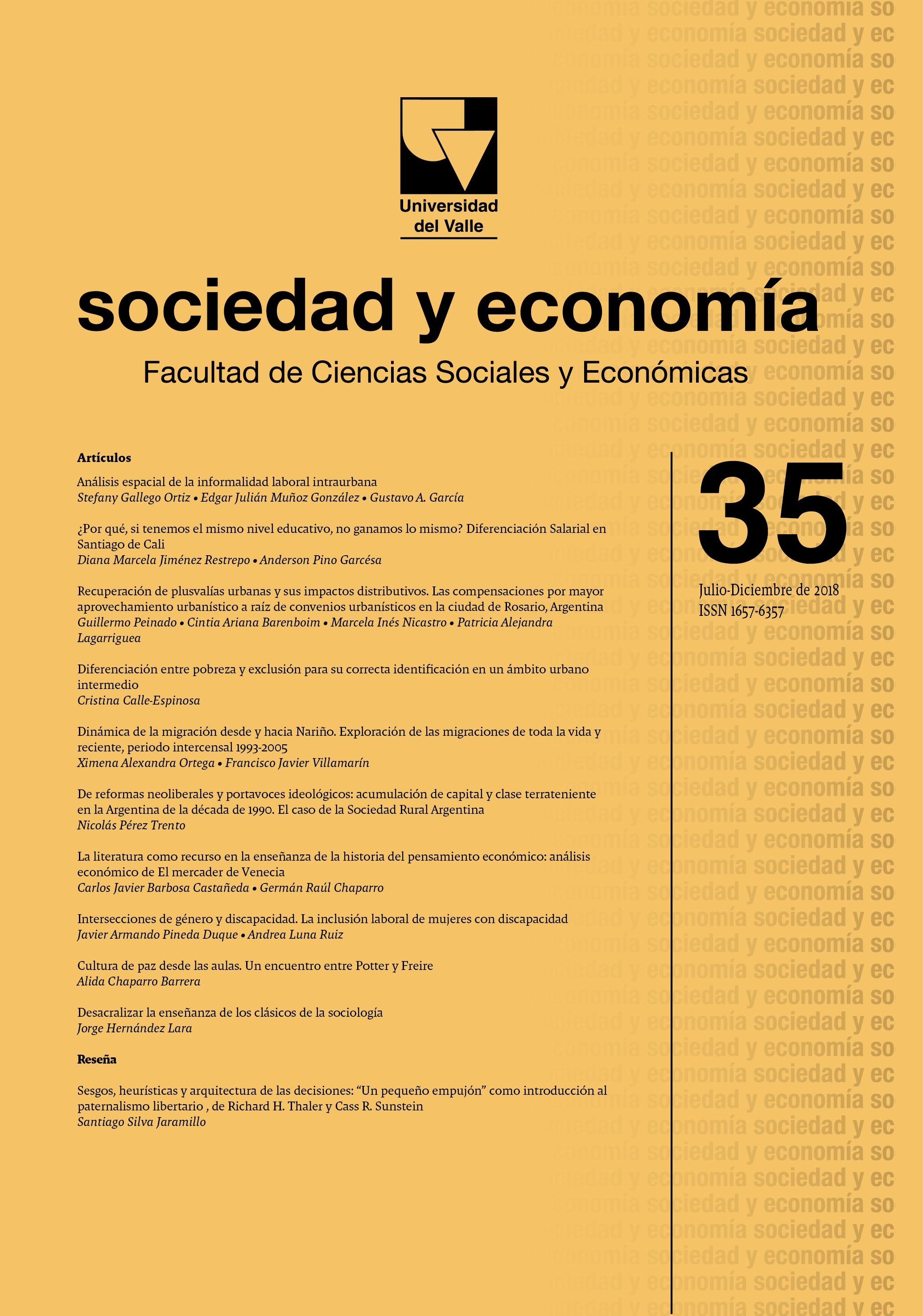Gender and Disability Intersections. Work Inclusion of Women with Disability
Keywords:
intersectionality, gender, disability, labor inclusionMain Article Content
This paper aims to explore both intersections between gender and disability in labor inclusion and the wor- king conditions of women with disabilities. Situational experiences of discrimination in labor inclusion are analyzed, based on the concept of intersectionality and considering some approaches to disability. The study was conducted in Bogotá, Colombia, it is based on semi-structured interviews with professional women with physical disabilities. Analyzing the labor inclusion of women with disabilities from the point of view of inter- sectionality allows recognizing not only the operation of a patriarchal dividend among the disabled community but also gender and imaginary norms in employers, which particularly affect the labor inclusion of the disa- bled women. From a social perspective on disability, it is concluded that transversing the gender perspective in broad labor inclusion strategies and policies is a need.
Downloads
Revista sociedad y economía editada por la Facultad de Ciencias Sociales y Económicas de la Universidad del Valle se encuentra bajo una Licencia Internacional Creative Commons Atribución - No comercial 4.0
Basada en una obra en http://sociedadyeconomia.univalle.edu.co

